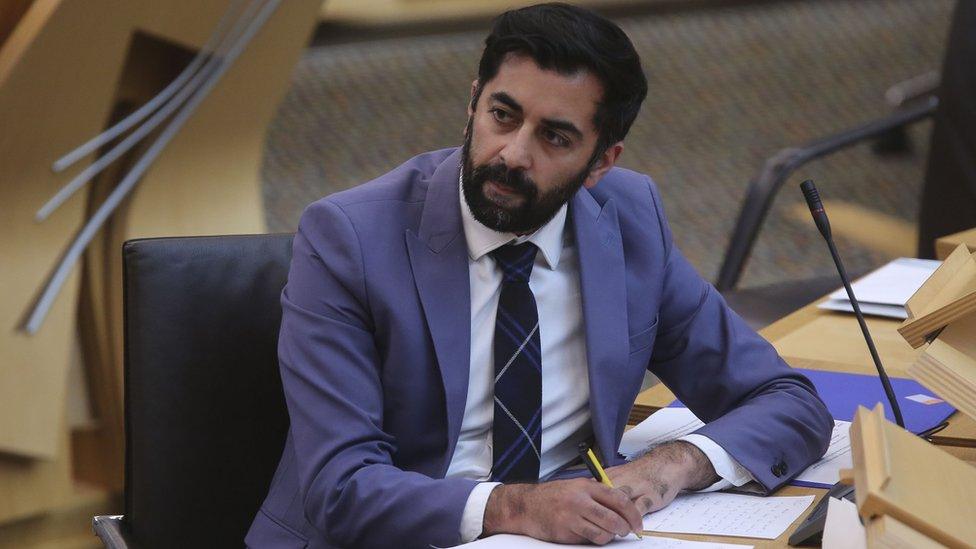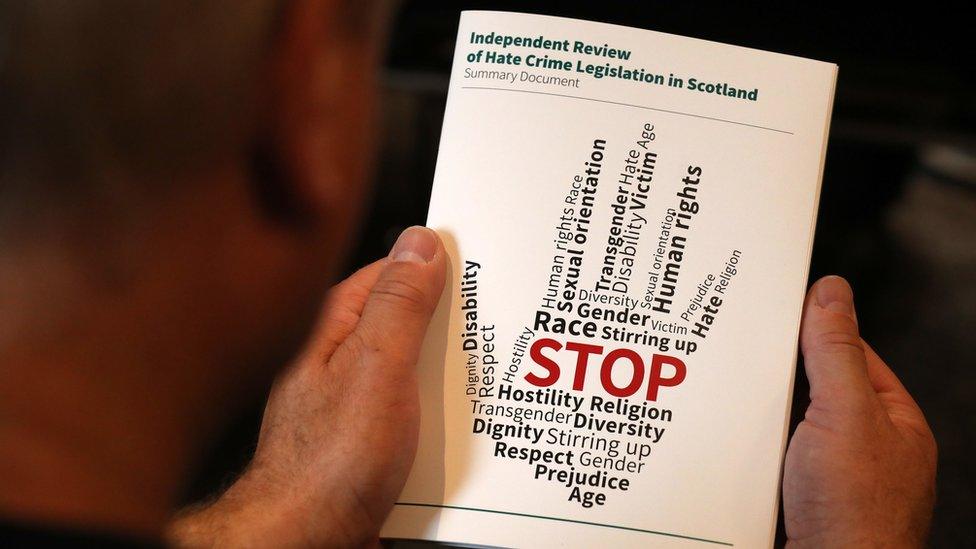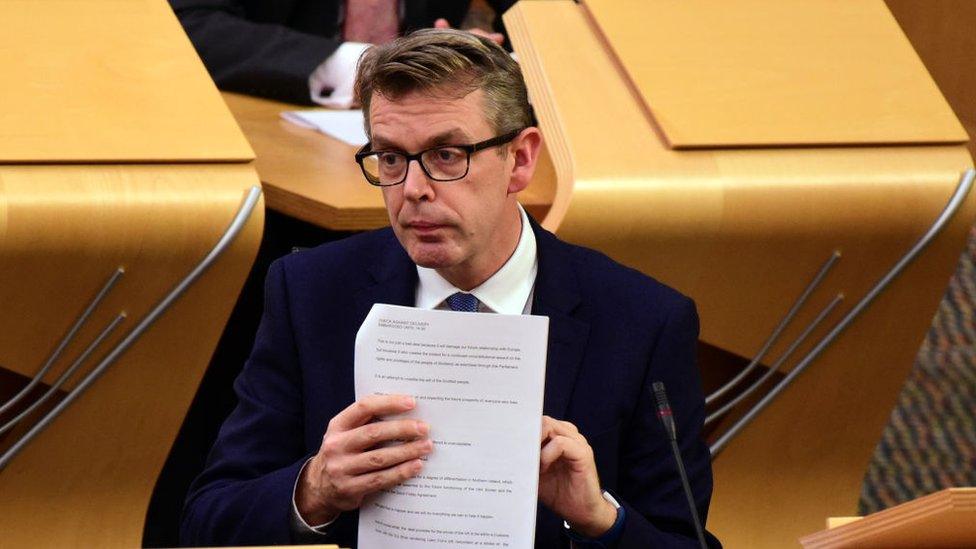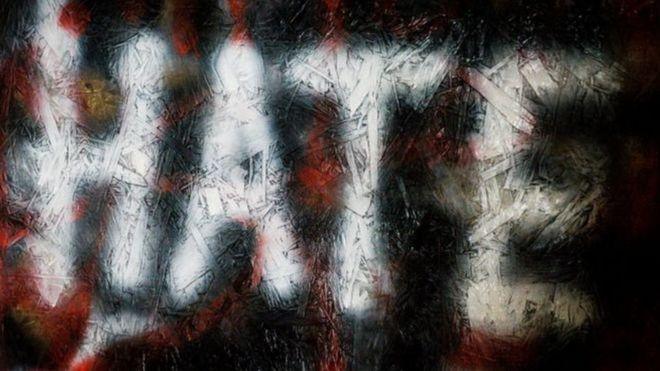MSPs call for further changes to Hate Crime Bill
- Published

Justice Secretary Humza Yousaf during a debate on the Hate Crime and Public Order Bill
The Scottish government has been urged to make further changes to its controversial Hate Crime Bill.
Plans to amend the legislation had already been announced.
It followed an outcry over proposals to create a new offence of "stirring-up hatred", which critics fear will stifle freedom of expression.
After scrutinising the Scottish government's plans, MSPs on Holyrood's Justice Committee say they believe additional changes are needed.
The committee has now recommended the Scottish Parliament back the general principles of the bill "subject to those amendments being made".
Convener Adam Tomkins said the committee is unanimous in calling for more changes.
The Scottish government introduced the Hate Crime and Public Order (Scotland) Bill after a review of current legislation.

Existing hate crime legislation was reviewed by Lord Bracadale
The government asked a senior judge, Lord Bracadale, to examine all of the country's existing hate crime legislation to make sure it was still fit for purpose in the 21st Century.
The bill was introduced in response to his recommendations.
Despite Mr Yousaf pledging to make amendments to the bill, MSPs on the Justice Committee want provisions concerning the safeguarding of free speech to be "deepened and strengthened".
In a new report on the bill, the committee demand clarification of the "reasonableness" defence available to those who are charged with "stirring-up" offences.
MSPs also argued that for behaviour to be considered "abusive" under the terms of legislation, prosecutors must be required to show a "reasonable person" would consider this to be the case - claiming this would set a higher bar for prosecutions.
While the committee said "hate crime offences are no more acceptable if they are committed inside a person's home than in public places", MSPs added care should be taken to ensure people are not prosecuted for expressing their views in a private space if there is "no public element".
The report is clear the bill is "not intended to prohibit speech which others may find offensive" - stressing the "right to freedom of speech includes the right to offend, shock or disturb".
'Education far more important'
MSPs said education - and not just legislation - is ultimately what is needed to tackle hate crime.
The report states: "Hate crime legislation will not, of itself, rid Scotland of prejudice.
"In pursuing that goal, education is likely to be far more important than necessarily creating new criminal offences.
"As such, the committee seeks further information from the Scottish government on what further steps it proposes to take and what additional resources it intends to provide, including in relation to education, to tackle prejudice in Scottish society."

Adam Tomkins is convenor of the justice committee
Mr Tomkins said "balancing freedom of expression and legislating to ensure hateful actions can be prosecuted is a difficult task".
He added: "We believe that, if amended in line with our unanimous recommendations, this bill should be fit to protect the communities it affords extra protections to without encroaching on the ability of citizens to have robust debates, hold views others find unpalatable and express themselves freely."
Mr Tomkins said it is "testament to the open-mindedness of all members" that the committee had "found such consensus on what has undoubtedly been a contentious piece of legislation".
Mr Yousaf, the justice secretary, said the Scottish government would give the recommendations "full consideration" ahead of Holyrood debating the bill on Tuesday.
He said he hopes MSPs "can listen to the voices of those affected by hate crime and come together to support the general principles of this legislation".
The minister added: "The parliamentary debate will provide the opportunity for MSPs to find consensus on how we collectively and effectively tackle hate crime, working together to ensure Scotland is an inclusive and forward-thinking society that safeguards all of its people and communities."
- Published15 December 2020
